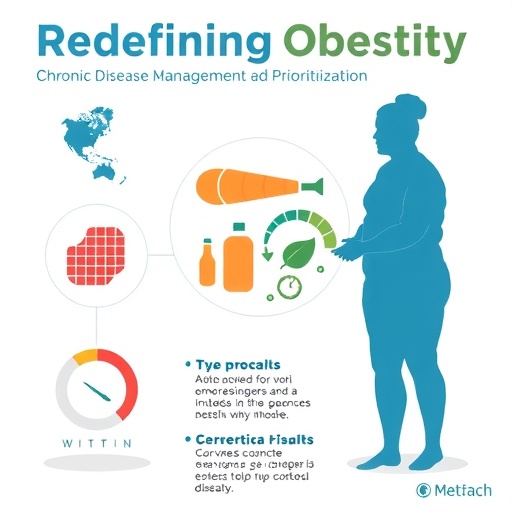Obesity has emerged as one of the most critical public health challenges of the 21st century, encapsulating a complex interplay of biological, environmental, and psychological factors. It is increasingly recognized not merely as a simple imbalance between caloric intake and expenditure but as a multifaceted chronic disease that necessitates a nuanced understanding for effective management and treatment. The evolving conception of obesity underscores a significant shift in public health priorities, where a singular focus on weight loss has been supplanted by strategies that emphasize comprehensive health improvement.
Recent literature, including a pivotal review by Singh, Sun, and Cheng, highlights the evolving definitions of obesity and its implications for management strategies. This review underscores that obesity is characterized not just by an excess of body fat, but also by the associated risks of comorbid conditions, such as type 2 diabetes, cardiovascular disease, and certain cancers. Understanding obesity as a chronic disease reframes the conversation about causality, etiology, and treatment approaches, signaling a departure from the traditional narrative that often stigmatizes individuals based on body size.
At the core of recognizing obesity as a chronic disease is the necessity for a public health framework that integrates a biopsychosocial model of care. This approach acknowledges the diverse range of factors that contribute to obesity, including genetics, metabolic pathways, socioeconomic factors, and psychological predispositions. By adopting this comprehensive perspective, healthcare providers can create tailored interventions that address the specific needs and circumstances of individuals struggling with obesity. Such personalized strategies have the potential to enhance engagement and efficacy in treatment outcomes.
The review also emphasizes cardiometabolic prioritization, an essential aspect that finds relevance in the management of obesity. By focusing on the cardiovascular and metabolic health of individuals with obesity, rather than solely on weight reduction, healthcare providers can adopt a more holistic approach. This paradigm shift lays the groundwork for interventions that can result in improved health markers, such as blood pressure, lipid profiles, and glycemic control, potentially reducing the overall risk of chronic disease complications.
Pharmaceutical options and surgical interventions are explored within the context of obesity management. Recent advances in pharmacotherapy have introduced various agents that facilitate weight management through different mechanisms. While these can be effective tools, clinicians are urged to integrate them into a comprehensive treatment plan that also includes lifestyle modifications and psychological support. Surgical options, like bariatric procedures, are also discussed, which can offer significant benefits for individuals with severe obesity. The review emphasizes the importance of careful patient selection and the necessity of ongoing support and management post-surgery.
An essential aspect of managing obesity that the review brings to the fore is the role of behavioral interventions. Cognitive-behavioral therapy (CBT) and other psychosocial treatments can significantly impact the ability of individuals to adopt and maintain health-promoting behaviors. By addressing the psychological barriers that often hinder weight management efforts, practitioners can empower patients to improve their overall health and well-being. There is a vital recognition that successful weight management is not solely about diet or exercise but encompasses a broader lifestyle change.
The societal implications of obesity as a chronic disease are far-reaching, calling for policy changes at multiple levels. Health systems must consider integrating obesity management into primary care settings, ensuring that it is treated with the same rigor and resources as other chronic diseases. This can help destigmatize obesity and encourage individuals to seek help without fear of judgment. Public health campaigns that promote awareness of obesity as a chronic, systemic issue, rather than a personal failure, are essential to foster a supportive environment for those affected.
The need for continued research is underscored in the narrative review, particularly in exploring the biological mechanisms that underpin obesity. Investigating the gut microbiome, genetic predispositions, and metabolic responses provides critical insights that can inform more effective treatment strategies. Advancements in research methodologies, including genomics and metabolomics, carry the potential to unveil novel pathways and therapeutic targets, enhancing our understanding of obesity as a multifaceted disease.
Collaboration among healthcare providers, researchers, and policymakers is essential in addressing the multifactorial aspects of obesity. By fostering interdisciplinary partnerships, stakeholders can develop innovative solutions that are responsive to the complex dynamics of obesity. The evolution of digital health technologies also plays a strategic role in this landscape, offering opportunities for remote monitoring, personalized feedback, and community support systems, thereby enhancing patient engagement and outcomes.
In conclusion, the narrative review by Singh, Sun, and Cheng elucidates the critical transition in the understanding of obesity as a chronic disease that demands comprehensive, multifaceted approaches to management. By prioritizing health over weight, facilitating behavioral change, and embracing a collaborative framework, we can aspire to mitigate the global burden of this pressing health crisis. The road ahead necessitates a collective effort, backed by scientific inquiry and an unwavering commitment to improving the health and lives of those affected by obesity.
Subject of Research:
Article Title:
Article References:
Singh, V., Sun, J., Cheng, S. et al. Obesity as a Chronic Disease: A Narrative Review of Evolving Definitions, Management Strategies, and Cardiometabolic Prioritization.
Adv Ther (2025). https://doi.org/10.1007/s12325-025-03352-y
Image Credits: AI Generated
DOI:
Keywords:




